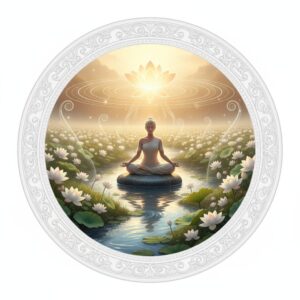The Universality of Spirituality
The Universality of Spirituality: Humanity’s Shared Heritage 🕊️
Spiritual practices such as meditation, kirtan, yoga, namaz, and prayer are not the private property of any one religion, sect, or individual; rather, they are the shared heritage of all humankind. This understanding is akin to how scientific inventions like the radio, TV, internet, fridge, and light bulb are not the property of any single country or religion but are available to the entire world. Just as we don’t need to change our religion to use these scientific products, there should be no need to alter one’s identity to adopt spiritual practices. Until we embrace this idea, religion will remain shackled in chains of division, and humanity will never unite.
Spiritual Discoveries: Like Scientific Inventions
These spiritual methods are the result of centuries of experience and profound self-reflection. They were discovered by sages, saints, prophets, and philosophers through deep dives into their consciousness. You can call them discoveries of spiritual scientists. Just as Einstein formulated the theory of relativity or Thomas Edison invented the light bulb, these spiritual explorers found ways to calm the human mind and soul.
– Yoga may have originated in India, but today it is used worldwide for physical and mental health. Millions in America and Europe practice yoga without adopting Hinduism.
– Many meditation techniques are linked to Buddhism, yet people from all backgrounds use them today to reduce stress and increase concentration.
– Namaz prayer is part of Islam, but its core purpose is surrender and inner peace, which anyone can experience.
These practices address universal human needs. They help us find relief from stress, mental peace, and the development of ethical values. Considering them the property of one group limits these great discoveries.
Science and Spirituality: A Model of Similarity
There is a deep connection between science and spirituality, and both should be viewed in the same way. Science provides an ideal model for how knowledge is shared.
– The internet revolutionized information, and using it doesn’t require anyone to abandon their religion, caste, or nationality.
– Hindus, Muslims, Sikhs, and Christians all use mobile phones because it’s a useful invention.
Similarly, spiritual “products” like mantras, meditation, and prayer are tools to improve life. A Hindu doesn’t need to become Muslim to adopt the method of namaz, and a Muslim doesn’t need to become Hindu to practice yoga. It’s simply a way to enrich life. As long as these practices remain tied to religious identities, they won’t reach their full potential.
Chains of Division: Religions’ Monopoly
Unfortunately, one of humanity’s great misfortunes has been that various religions and sects have claimed monopoly over spiritual discoveries.
– Some have claimed namaz and kalma as their own.
– Some have staked claim to kirtan and Guru’s words.
– Some have made meditation and mantras their property.
This monopoly has limited these universal formulas. As a result, religion, which should have been a means of human unity, has become the biggest cause of division. When spiritual discoveries began to be sold or linked to specific groups, religion strayed from its original spirit. It became enslaved—to political, social, and economic interests. This has led to increased religious conflicts, discrimination, and animosity.
Solution: The Role of Spiritual Scientists
The only solution to this problem is to once again view spirituality as scientific and universal. Spiritual scientists like Kesar Kalpvriksh aim precisely for this: to free spirituality from its chains and make it humanity’s shared heritage. These institutions teach people how to use various spiritual practices without changing their identity.
– They separate meditation from any one religion and present it as a means of mental peace.
– They portray yoga not just as physical exercise, but as a path to self-awareness.
When every person claims these spiritual “formulas” as their own, only then can religion become one. Just as science has bound us all into a global village, spirituality can unite us as one humanity. Until every individual understands that spiritual practices are their own property, there will be no liberation from the slavery of religion. This is the beginning of a revolution that can transform spirituality from “property” to “shared heritage” and lead humanity toward a better future.
